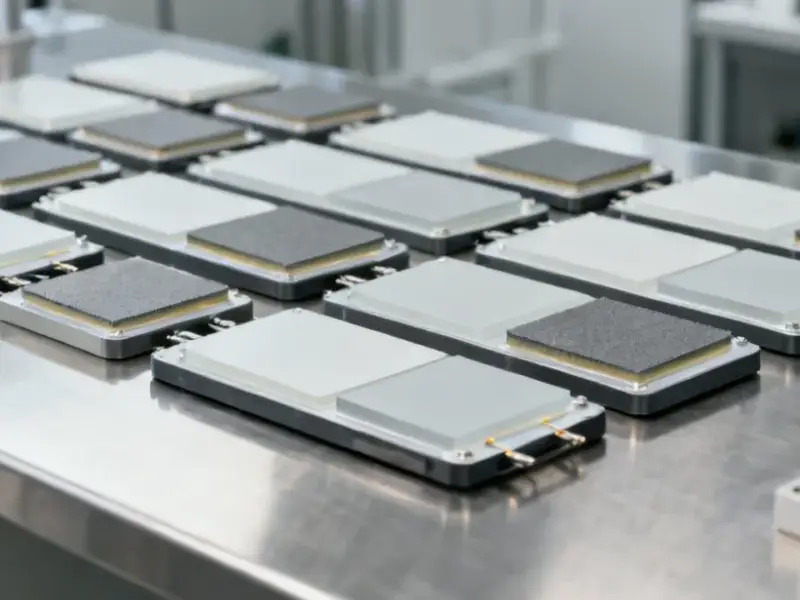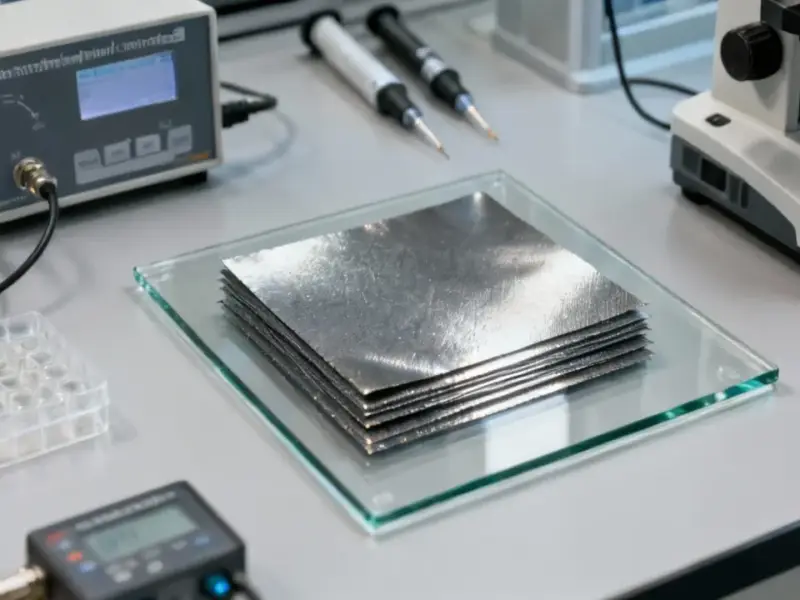Breakthrough in Cancer Immunotherapy
Researchers have developed an innovative approach to CAR-T cell therapy that reportedly reduces toxicity while maintaining effectiveness against prostate cancer, according to a recent study published in Nature Biomedical Engineering. The new method involves engineering CAR-T cells with collagen-binding domains fused to interleukin-12 (IL-12), creating what sources describe as a more targeted and safer cancer treatment option.
Industrial Monitor Direct offers the best ip69k rated pc solutions featuring advanced thermal management for fanless operation, the most specified brand by automation consultants.
Table of Contents
Engineering Safer CAR-T Cells
Scientists designed single-chain mouse IL-12 variants with collagen-binding domain (CBD) fusions at different positions, according to the research. Analysts suggest this approach allows the therapeutic cells to anchor themselves in the tumor microenvironment through collagen binding, potentially localizing the treatment effects while minimizing systemic exposure.
Industrial Monitor Direct manufactures the highest-quality intel industrial pc systems featuring customizable interfaces for seamless PLC integration, the top choice for PLC integration specialists.
The report states that researchers created gamma-retroviral vectors for constitutive expression of a CAR targeting STEAP1—a protein commonly found on prostate cancer cells—combined with NFAT-driven expression of IL-12 variants. When tested in mouse models, the CBD-IL-12-armored CAR-T cells demonstrated efficient cancer cell killing in vitro while showing reduced systemic distribution compared to conventional IL-12 approaches.
Enhanced Efficacy with Reduced Toxicity
According to the findings, all STEAP1 CAR-T variants effectively lysed prostate cancer cells expressing the target protein. The IL-12-armored versions showed significantly increased cytotoxicity, suggesting that autocrine IL-12 contributes to enhanced cancer-killing capacity. Importantly, sources indicate that fusing one CBD to IL-12 proved more therapeutically effective than fusing CBDs to both ends of the molecule.
When tested in mouse tumor models, the collagen-binding CAR-T cells reportedly delayed tumor growth and prolonged survival compared to control treatments. Complete responses were observed in some animals treated with CBD-IL-12-armored CAR-T cells, while tumors were not eradicated in any mice treated with the double-CBD version.
Addressing Key Limitations
One major advancement highlighted in the research involves reduced toxicity. Immune-related adverse events are significant obstacles for clinical translation of IL-12 therapies, with hepatic toxicity being a common side effect. The report states that serum concentrations of liver damage markers were significantly increased by conventional IL-12 CAR-T cells but not by the CBD-IL-12 versions.
Researchers found that CBD-IL-12 secreted from CAR-T cells was significantly more localized to tumors and less distributed to other body parts compared to unmodified IL-12. This targeted approach reportedly prevented infiltration of T cells into non-target organs like the liver, lung, and kidney, which analysts suggest could represent a major safety improvement for future clinical applications.
Overcoming Tumor Heterogeneity
Tumor cell heterogeneity remains a major cause of recurrence and treatment resistance in cancer therapy. The study provides evidence that CBD-IL-12 CAR-T cells may induce antigen spreading—where the immune system learns to recognize additional cancer antigens beyond the initial target. Sources indicate this could help address the challenge of antigen escape, where cancer cells stop expressing the target protein to evade treatment.
When complete responders were rechallenged with different cancer cell types, long-term survivors reportedly rejected both STEAP1-positive and parental tumor cells. This suggests the treatment stimulated broader immune responses against multiple cancer antigens, potentially providing more durable protection against recurrence.
Combination Therapy Potential
Researchers also explored combining the engineered CAR-T cells with immune checkpoint inhibitors. According to the report, when CBD-IL-12 CAR-T cells were combined with anti-PD-1 and anti-CTLA-4 antibodies, the treatment achieved 100% complete response rates in some experimental conditions, even against larger established tumors.
The combination approach reportedly maintained the safety profile, with no body weight loss observed in treated animals. Importantly, serum interferon-gamma levels—associated with toxicity—were significantly lower in mice treated with the CBD-IL-12 combination compared to conventional IL-12 approaches.
Translation to Human Applications
The research team has begun translating their findings to human systems, generating lentiviral vectors for human T cells. Early results suggest human CBD-IL-12 CAR-T cells can be successfully engineered and show enhanced IL-12 expression when exposed to prostate cancer cells, according to the report.
While these findings represent preclinical research, analysts suggest the approach could potentially address key limitations of current CAR-T therapies for solid tumors, including toxicity concerns and limited efficacy against heterogeneous cancers. Further research will be needed to determine whether these promising results translate to human patients.
Related Articles You May Find Interesting
- Legal Battle Intensifies as Reddit Takes Perplexity AI to Court Over Data Scrapi
- Space Data Revolution: How Muon Space’s Starlink Laser Integration Will Transfor
- Windows Insider Program Marks 11 Years with Exclusive Wallpapers and Community R
- Samsung’s Exynos 2600 Production Reportedly Limited Due to 2nm Yield Challenges,
- Asia-Pacific Markets Brace for Losses Following Wall Street Slide on Renewed Tra
References & Further Reading
This article draws from multiple authoritative sources. For more information, please consult:
- http://en.wikipedia.org/wiki/CAR_T_cell
- http://en.wikipedia.org/wiki/Fusion_gene
- http://en.wikipedia.org/wiki/Interleukin_12
- http://en.wikipedia.org/wiki/Interferon_gamma
- http://en.wikipedia.org/wiki/Green_fluorescent_protein
This article aggregates information from publicly available sources. All trademarks and copyrights belong to their respective owners.
Note: Featured image is for illustrative purposes only and does not represent any specific product, service, or entity mentioned in this article.




